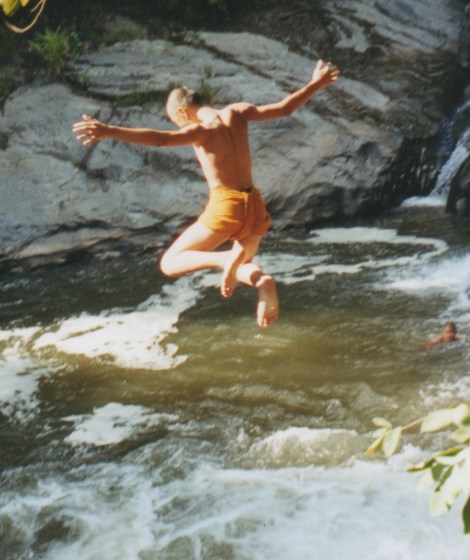It’s pretty common self-help practice these days to pull from many different spiritual backgrounds. I love learning about different religions and philosophies and find that comparing them usually shows that they all kind of say the same things.
But when you use ideas selectively and take them out of their greater context, you run the risk of losing the richer nuance (and sometimes the ultimate meaning) in these concepts. I get annoyed when I see Law of Attraction promoters reference Buddhist concepts to support their quick reward philosophy.
When I studied abroad in Thailand, I took a course in Thai Buddhism with a monk who was very well-educated and traveled. He taught us some of the main principles of the lesser-known Theravada strain of Buddhism.
Eight years later, I still remember his lessons on the Mangala Sutta.
I have had difficulty trying to track down more information on this concept (I wish I still had my course book!). But the basic premise has stayed with me because I find it very practical.
The Mangalas are 38 “blessings” in life. My professor explained that they work a bit like a ladder. You can’t skip ahead from one to another many rungs above it. Rather, each blessing is a step up to the next. With each blessing, you open yourself to the one above it.
This factors into the idea of karma. A superficial reading of karma says that you get rewarded or punished for your actions accordingly. What you do comes back to you (in the Law of Attraction, it’s what you think comes back to you).
But with the Mangalas, it’s less about punishment and reward. It’s more like positioning. If you have not achieved certain blessings in your life along the Mangala path, you won’t be able to access the ones above. You’re not being punished. But you haven’t put yourself in a position to reach the better things beyond.
I like this teaching because spells it out the idea of a process–a constant effort. You don’t just ask for something and get it. You have to work toward it, and in the process of working toward it you prepare yourself to receive further blessings.
Besides giving me ammunition against James Ray and the self-help industry tendency to water down meaningful insights, I find the Mangala concept useful in my quest to create a self-styled life.
Sometimes I think we get hung up on questions of right and wrong. Am I making the right decision? Is this the wrong way to solve this problem? With this, we fear making a mistake, and that fear often breeds inaction.
To me, it’s more helpful to recognize that while there are certain ultimate goals we set for ourselves, there are many ways to get there. Decisions aren’t always about right and wrong, but rather, this way or that way.
There are, however, constant values that will ensure we keep moving toward our goal. If we veer away from those, we will get stuck in a place that just won’t allow us to move forward to what we really want. The only way you make a true mistake is if you really lose yourself along the way. Everything else is just part of the process. At least, that’s what I get from the Mangalas!
Do you have any special lesson you learned at some point that you go back to frequently?




you comeing in india ….
Haha, I would love to! I have spent some time in SouthEast Asia but not India, yet.
hey Jean, I just read this post and really enjoyed it. If it wasn’t after midnight, I’d be googling more about the Mangalas. I definitely get hung up on “right” or “wrong” decisions and lately have been fighting regret toward decisions I have made along my career/education path. But I keep trying to have faith that one day I might be able to look back and see all those decisions almost like this concept of a ladder — making up a happy and rewarding life!
I loved the so many points you emphasized in this post, but my favorite is the one about constant effort. Whenever things don’t seem to go my way no matter how hard I worked for them, I am always tempted to give up. And then I end up doing something else and when difficulty arises again, I am less motivated to go on. But the truth is that anything that’s worth having requires our effort. Nothing in the world is easy. Everything entails sacrifice.
I wish you well. 🙂
Thanks for your comments. Yeah, I think working hard can become a habit (and giving up can also become a habit). You can train yourself either way!
Good luck to you too!
Jean, I love this. This is so true…you can’t “skip ahead”, you need to climb each rung to obtain your “goal” with the next rung. Thanks for another great blog, cuz! Love you!
Thanks for reading and sharing, Mary. Glad you liked it 🙂
Nice thoughts..
Thanks for reading!
That’s a big question. I’ll leave the answer(s) to that one to certain posts of reflection.
I do like the following thought that I carry with me often “Live your questions now, and perhaps even without knowing it, you will live along some distant day into your answers. “
by Rainer Maria Rilke
.
Oooh that’s a great quote!